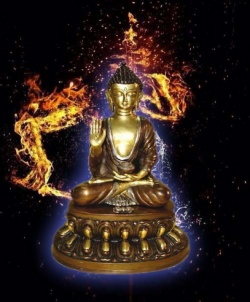Hindu Critique of Buddhist Epistemology
Kumarila on Perception
Curzon Hindu Studies Series, published in collaboration with the Oxford Centre for Hindu Studies, intends primarily the publication of constructive Hindu theological, philosophical, and ethical projects. The focus is on issues and concerns of relevance to readers interested in Hindu traditions and a wider range of related religious concerns that matter in today's world. The Series seeks to promote excellent scholarship and, in relation to it, an open and critical conversation among scholars and the wider audience of interested readers. Though contemporary in its purpose, the Series also recognizes the importance of a contemporary retrieval of the classic texts and ideas, beliefs and practices, of Hindu traditions. One of its goals then is the promotion of fresh conversations about what has mattered traditionally.
It is therefore most fitting that John Taber's A Hindu Critique of Buddhist Epistemology: Kumârila on Perception should be one of the first volumes in the Series. Mimãrpsä ritual thinking and exegesis, traditionally listed as one of the six major systems of Hindu theology and philosophy (daréana), is a superlative and uniquely Indian mode of thought. As Taber explains in his own Preface and his Introduction, Kumãrila Bhatta is not only a leading Mimãmsä thinker, but also one of the leading intellectuals of the Indian tradition, a formidable exemplar of the intellectual rigor, analysis, and argumentation for which India is rightly famous. Although Kumärila's Slokavärttika - of which a major chapter is translated and interpreted here - has been available in English for nearly a century, so great a classic deserves the benefit of multiple renderings in English, and indeed has long been in need of a thoroughly accurate translation and elaboration. Taber's painstaking yet lucid translation, accompanied by valuable notes, brings Kurnãrila's arguments to life, in a way that is accessible even for someone who is not a master of Sanskrit, while still satisfying trained Sanskritists.
As readers unfamiliar with Kumãrila Bhatta gradually find their way into this demanding but richly rewarding treatise on perception, they may at first wonder whether and how this technical argumentation enhances our knowledge of Hindu religious traditions, even the ritual traditions connected with Mimámsä. Yet A Hindu Critique of Buddhist Epistemology clearly illumines an important dimension of the Hindu traditions - in part simply by showing us a leading Brahmanical thinker at work, exemplifying how he thought through and deciphered the meaning of reality and our ways of knowing it, and how very elegant Indian religious thinking can be.
A Hindu Critique of Buddhist Epistemology also shows Kumãrila in determined disputation with Buddhist opponents, arguing the fine points of epistemology; clearly, he is determined to concede nothing to his intellectual adversaries. As Taber points out - and highlights by the book's title - Kumãrila's critique of Buddhist epistemology is a single extended argument (a treatise in itself, though actually only a part of the full argument that is the Slokavârttika), a stellar example of how a committed intellectual makes his case, stands by his insights and proposals, and probes his adversaries' positions for what can be learned from them and what in his view is mistaken or needs to be corrected. Modern concerns and values have largely moderated our modes of interreligious conversation today, and few of us are likely to proceed so unrelentingly and fiercely as did Kumãrila. Nevertheless, his intellectual rigor and uncompromising commitment to clear understanding are values A Hindu Critique of Buddhist Epistemology fittingly highlights early on in this Series. Even in a cross-cultural and inter-religious environment, we need to remember how to argue well with one another.

